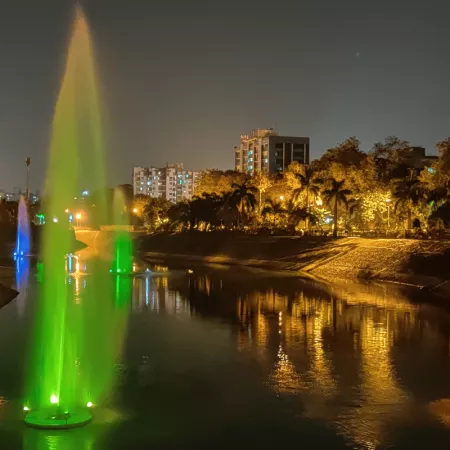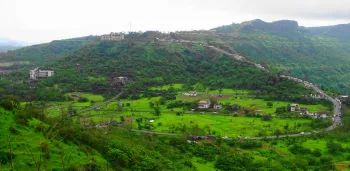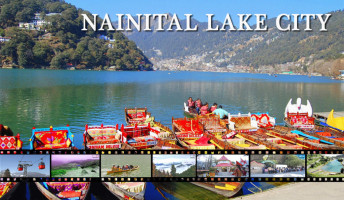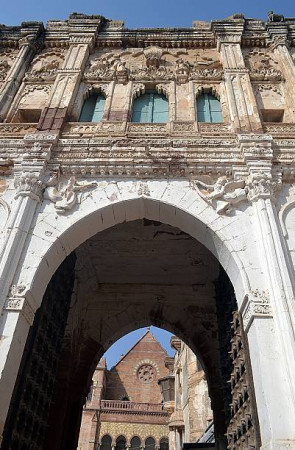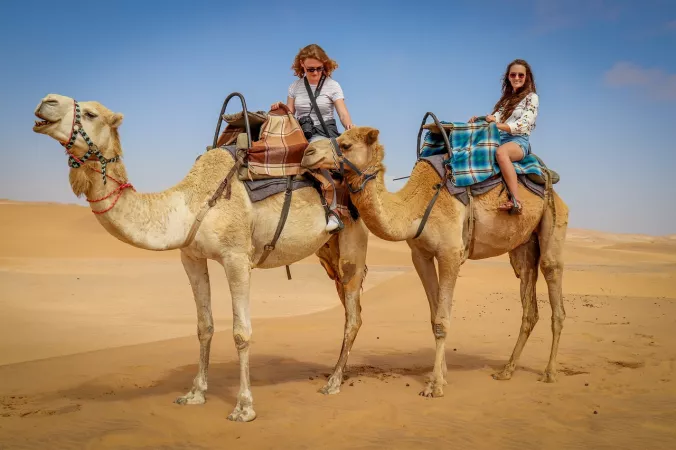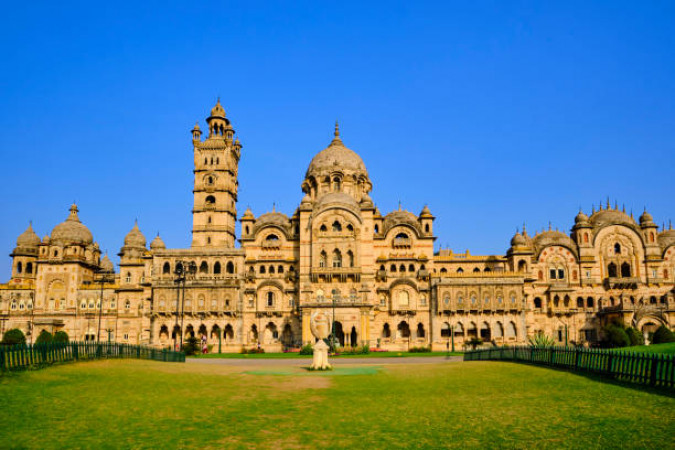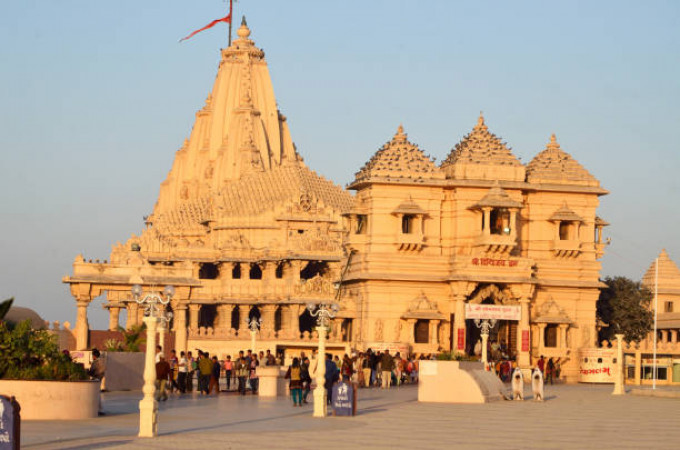Surat Travel Guide
Surat, located in the state of Gujarat, India, is a city known for its rich history, vibrant culture, and significant economic importance. Situated along the Tapi River, Surat has been a prominent trading center since ancient times, attracting merchants from around the world. Today, it is famous for its diamond and textile industries, as well as its delicious street food.Top Attractions in Surat
- Surat Castle
- Dumas Beach
- Sardar Patel Museum
- Gopi Talav
- Amaazia Water Park
Surat is Famous for
Surat is most famous for its diamond and textile industries, as well as its mouth-watering street food.Top Attractions in Surat
- Explore the historical Surat Castle
- Relax on the black sand of Dumas Beach
- Visit the Sardar Patel Museum for a glimpse into the city's past
- Enjoy a day of fun at the Amaazia Water Park
What's Great about Travelling to Surat?
- Experience the rich culture and history of Gujarat
- Indulge in delicious local cuisine
- Shop for exquisite textiles and jewelry
What's Not So Great about Travelling Surat?
- High levels of pollution in the city
- Extreme heat during the summer months
- Limited public transportation options
Travel Tips for Surat
- Check visa requirements before your trip
- Use local transportation apps for getting around the city
- Avoid drinking tap water and opt for bottled water
Important Surat trip information
- Ideal Duration: A 3-4 day trip is ideal to explore the city.
- Best Time to Visit: The best time to visit Surat is during the winter months from November to February.
- Nearby Airports and Railway Stations: Surat has its own airport - Surat Airport (STV). The city is well-connected by train with Surat Railway Station being a major hub.
Top 17 Places to visit in Surat
Total
30,000
*EXCLUDING APPLICABLE TAXES 4.1 Ratings
( 56 Reviews )
( 56 Reviews )
Total
15,200
*EXCLUDING APPLICABLE TAXES 4.0 Ratings
( 1321 Reviews )
( 1321 Reviews )
Total
35,000
*EXCLUDING APPLICABLE TAXES 4.1 Ratings
( 56 Reviews )
( 56 Reviews )
FAQ's on Surat
Q1: What is the best time to visit Surat?
The best time to visit Surat is during the winter months from November to February when the weather is pleasant and ideal for exploring the city. Avoid the monsoon season from June to September due to heavy rainfall. Surat also hosts cultural festivals and events during the winter months, adding to the charm of the visit.
Q2: Do I need a visa to travel to Surat?
Most tourists traveling to Surat will need a visa. However, some nationalities may be eligible for visa-on-arrival or visa-free entry. It is advisable to check with the local embassy or consulate for specific visa requirements based on your nationality before traveling to Surat.
Q3: What are the must-visit attractions in Surat?
Surat is known for its historical landmarks such as the Surat Castle, Dutch Garden, and Sardar Patel Museum. The city is famous for its textile and diamond industries, so a visit to the textile market and diamond cutting units is a must. Don't miss the picturesque Dumas Beach for a relaxing evening by the Arabian Sea.
Q4: Is Surat a safe place to travel?
Surat is generally a safe city for travelers. Like any other destination, it is advisable to take standard precautions such as avoiding isolated areas at night and keeping belongings secure. It is recommended to be cautious in crowded places to prevent any incidents of petty theft.
Q5: What is the local currency in Surat and can I use credit cards?
The local currency in Surat is the Indian Rupee (INR). ATMs are widely available in the city, and major credit cards are accepted in hotels, restaurants, and larger establishments. It is recommended to carry some cash for smaller vendors and local markets.
Q6: What is the local cuisine like in Surat?
Surat offers a diverse culinary experience with a focus on vegetarian Gujarati cuisine. Don't miss trying local delicacies like Locho, Ghari, and Surti Undhiyu. The city is also known for its street food, including delicious snacks like Khaman, Sev Khamani, and Surat's famous street-side sweets.
Q7: What transportation options are available in Surat?
Surat has a well-connected transportation system that includes buses, auto-rickshaws, and taxis for local travel. Rental services for cars and bikes are also available for exploring the city and nearby attractions. Public transport is cost-effective and convenient for getting around Surat.
Q8: Are there any cultural norms or etiquette I should be aware of when visiting Surat?
When visiting Surat, it is important to respect the local customs and traditions. Modest clothing is recommended, especially when visiting religious sites. As a sign of respect, remove your shoes before entering temples or homes. It is also polite to greet locals with a traditional "Namaste" and avoid public displays of affection. Remember to ask for permission before taking photographs of people or religious sites.
Q9: I am a travel agent. How can I buy travel leads of Surat?
Register yourself as a travel agent at agents.tripclap.com and then you can buy travel leads to Surat once your account is approved. For more details contact our support team at +91-8069186564 or support@tripclap.com
